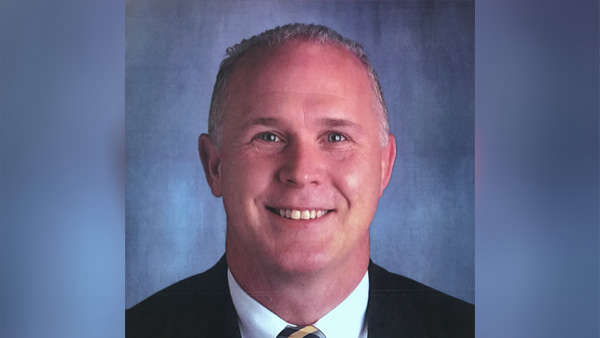Governor Mike DeWine, Lt. Governor Jon Husted, and Dr. Amy Acton, MD, MPH, provided updates on Ohio's response to the COVID-19 pandemic.

(Columbus, Ohio)—Ohio Governor Mike DeWine, Lt. Governor Jon Husted, and Dr. Amy Acton, MD, MPH, provided the following updates on Ohio's response to the COVID-19 pandemic.
LIQUOR CONTROL COMMISSION VOTE:
The Ohio Liquor Control Commission passed an emergency rule to allow establishments with an existing on-premises liquor permit to sell and deliver alcohol, including high-proof liquor in limited quantity, for off-premises consumption.
Breweries can also now sell beer and wine that are not their own without food purchase, but food purchase is required for the sale of high-proof liquor.
Under the rule, patrons can purchase no more than two drinks per meal. All drinks must be closed and remain closed during transport as per the open container law cited in ORC 4301.01(B)(6). Drinks cannot contain more than two ounces of spirituous liquor per container.
This rule will remain in effect for up to 120 days unless rescinded by the Liquor Control Commission, whichever occurs first.
Similar emergency rulings have been enacted recently in other states, such as New York and Texas, to provide some financial relief to restaurants and bars that have had to close their dining rooms to contain the spread of COVID-19.
As always, patrons are encouraged to drink responsibly and obey all applicable laws.
OFFICE OF SMALL BUSINESS RELIEF:
A new office has been developed within the Ohio Development Services Agency to better coordinate Ohio's efforts to identify and provide support for Ohio’s nearly 950,000 small businesses.
The Office of Small Business Relief will:
- Serve as the state’s designated agency for administrating federal recovery funds awarded to Ohio for small business support and recovery;
- Work with federal, state, and local partners to evaluate and determine possible regulatory reforms that encourage employment and job creation; and
- Coordinate efforts of Ohio’s Small Business Development Centers and Minority Business Assistance Centers.
More information on all resources currently available to small businesses is available at coronavirus.ohio.gov/BusinessHelp.
OHIO PRISONS:
Select Offenders Within 90 Days of Release
Ohio Department of Rehabilitation and Correction Director Annette Chambers-Smith today recommended to the Correctional Institution Inspection Committee (CIIC) that certain inmates scheduled to be released in the next 90 days be released sooner to allow for increased social distancing between prison staff and inmates, pursuant to Ohio's overcrowding emergency statute (ORC 2967.18).
A total of 141 inmates are under consideration for release.
"We're not looking to release every inmate scheduled to be released in the next 90 days, rather we're talking about specific cases that fit very specific criteria," said Governor DeWine. "We will not be sending murderers, sex offenders, and the like home early."
In determining which inmates may qualify for early release, inmates were disqualified if they:
- Were convicted of serious charges such as sex offenses, homicide-related offenses, kidnapping, abduction, ethnic intimidation, making terroristic threats, or domestic violence
- Had been denied judicial release in the past
- Have a prior incarceration in Ohio
- Are an inter-state offender
- Have active warrants or detainers
- Have had a serious prison rule violation in the last 5 years
The final decision on whether to authorize the emergency release rests with Governor DeWine.
60+ Years Old with Medical Condition(s)
An additional 26 inmates who are over the age of 60 and suffering from one or more chronic health conditions are also under consideration for release. These inmates have served more than half of their sentences and meet similar criteria to the list above.
Due to these individuals’ medical vulnerability and other factors, Governor DeWine is asking judges and prosecutors associated with these cases to waive the required 60 days' notice so that these cases can move straight to the parole board. The parole board is prepared to begin meeting on Friday to address these matters. In cases where there are specific victims who must be notified, those victims will receive notice and have the opportunity for their voices to be heard.
After the parole board makes a recommendation on these 26 cases, Governor DeWine committed to acting quickly to decide in favor of or against a commutation in each case.
If the parole board recommends that a sentence be commuted, the board can also recommend additional conditions upon the release of the inmate. The governor can accept those conditions or add to them. If the conditions are violated, the offender would be sent back to prison to complete his/her sentence.
SNAP UPDATE:
The Ohio Department of Job and Family Services announced today that those who did not already receive the maximum monthly allotment for their household size from the Supplemental Nutrition Assistance Program (SNAP) in March will be issued an additional payment beginning this week.
All SNAP-eligible households will also soon be able to pick up a pre-packaged box of food at their local food bank. Ohio obtained federal approval to waive the administrative verification normally required at food banks to streamline the process and limit person-to-person contact.
RELATED STORIES:

 Groundbreaking Held at Short Street Pavilion Site
Groundbreaking Held at Short Street Pavilion Site
 North Vernon Man Facing Drug Charges in Dearborn Co. After Traffic Stop
North Vernon Man Facing Drug Charges in Dearborn Co. After Traffic Stop
 USPS to Host Job Fairs in Osgood, Versailles
USPS to Host Job Fairs in Osgood, Versailles
 Executive Orders Reduce Over-Regulation, Create Opportunity While Protecting Environment
Executive Orders Reduce Over-Regulation, Create Opportunity While Protecting Environment
 Kentuckians Urged to Plan for a Sober Ride This St. Patrick’s Day
Kentuckians Urged to Plan for a Sober Ride This St. Patrick’s Day
 United Way Matches RCCF Donation to Turnover Hunger Program
United Way Matches RCCF Donation to Turnover Hunger Program













